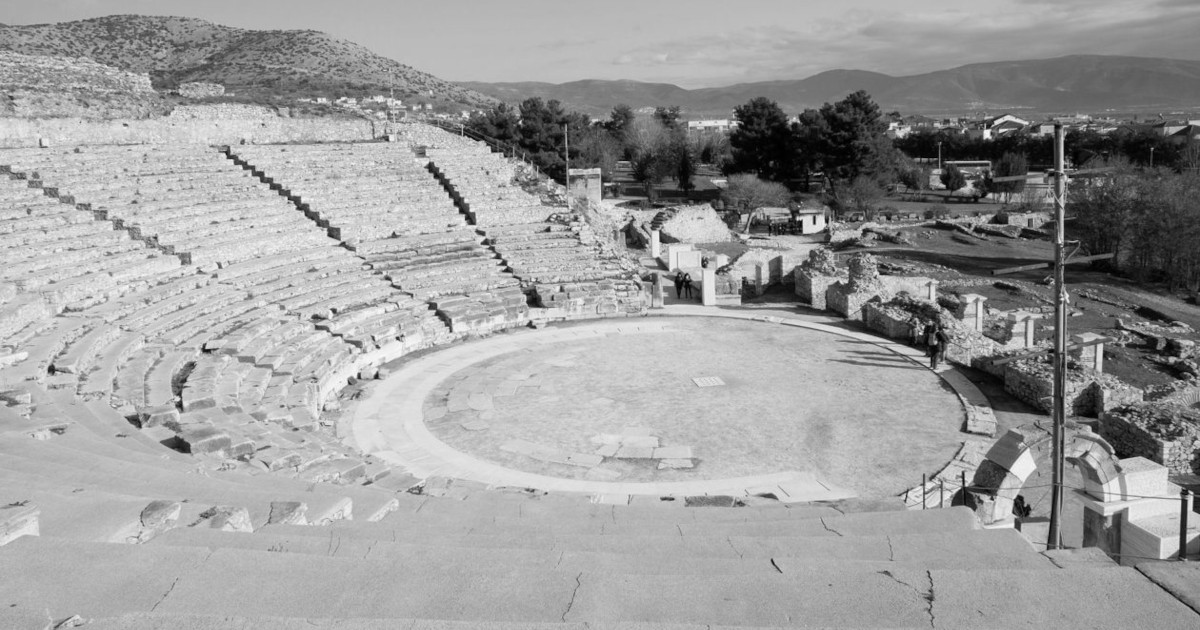Colonize
© October 2022 By David Eric Williams
 One of the problems we face when attempting to accurately interpret the Bible is a lack of knowledge that was common to the original audience. For instance, the New Testament has a lot to say about the various positions of service in the church. We are told there are pastors, teachers, prophets and so on. In addition there are assorted terms used to describe positions of leadership such as bishops, elders, and deacons. Nevertheless, the New Testament does not provide detailed instructions on church polity. As a result there is a wide variety of opinions concerning church polity. Episcopalians, Presbyterians, Congregationalist, independents and so on all use the same Bible to develop their particular ecclesiastical organization.
One of the problems we face when attempting to accurately interpret the Bible is a lack of knowledge that was common to the original audience. For instance, the New Testament has a lot to say about the various positions of service in the church. We are told there are pastors, teachers, prophets and so on. In addition there are assorted terms used to describe positions of leadership such as bishops, elders, and deacons. Nevertheless, the New Testament does not provide detailed instructions on church polity. As a result there is a wide variety of opinions concerning church polity. Episcopalians, Presbyterians, Congregationalist, independents and so on all use the same Bible to develop their particular ecclesiastical organization.
This would not have been a problem for the first century church. First century churches were established by the Apostles and apostolic teams. Thus, church leadership and polity was established by apostolic authority and everybody knew how the church was supposed to be structured. Unfortunately, that "common knowledge" is lost us today.
This is not the only example pertinent to the modern church. Indeed, the gospel mission of the church should not compromised by a difference of opinion concerning organizational matters. On the other hand, there are times a lack of knowledge does endanger the mission of the church.
In his letter to the church in Philippi, the apostle Paul says, but we are citizens of heaven, where the Lord Jesus Christ lives. And we are eagerly waiting for him to return as our Savior (Philippians 3:20). Generations of pastors and teachers have ignored the common knowledge of the Philippian Christians in their interpretation of this passage. It is not uncommon to suggest this verse is a reminder that this world is not our home and therefore it should be of little concern to us. Yet, that is the opposite of what Paul has in mind.
Anyone who lived in Philippi would have been fully aware of the fact they lived in a colony of Rome. As such they enjoyed the privileges of Roman citizenship and willingly embraced its duties. As a colony, the people of Philippi had the responsibility to take Rome into the world around them. A colony of Rome was considered a "little Rome" influencing the surrounding society and bringing the local population under the sway of Rome's superior culture.
With that understanding we read Paul's letter to the church at Philippi in a different light. Paul is not saying Christians are citizens of heaven awaiting their departure; they are colonizers with the task of bringing heaven to earth. This is what Jesus meant when he instructed us to pray that God's will would be done on earth as it is in heaven (Matthew 6:10). We repeat those words often, perhaps every Sunday, never understanding the meaning. Both Jesus and Paul are calling Christians to bring their life and arena of activity under the Lordship of Jesus Christ so God's will is done in the lives of his people and their sphere of influence. This is exactly what Rome expected of colonizers. The people of Philippi understood this. Paul made a play on their Roman citizenship in his letter to powerfully illustrate their responsibility as subjects of King Jesus. No one in Phillipi would have interpreted Paul's letter as a "get me out of here" tract.
The results of the "get me out of here" interpretation of heavenly citizenship are all around us. The Church at large has, for the most part, abandoned its responsibility as a colonizing force. We have withdrawn from the public square; we have bowed the knee to the foreign god of political power. And we can expect the world to continue in its downward spiral until such a time we shoulder our responsibility to act as heavenly colonizers.
Entire Site Copyright © 2025 By David Eric Williams










